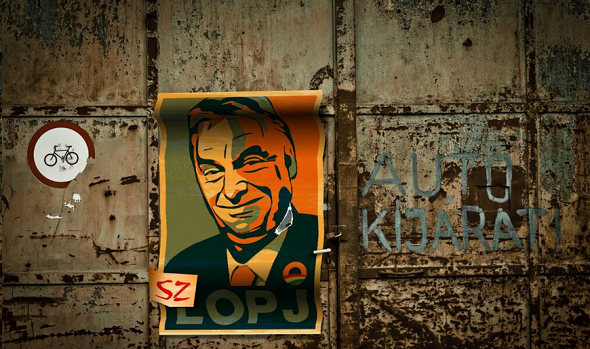The Gabriel Péri Foundation, an observer organisation of transform! europe, invites you to this online seminar about the current state of the far right in Europe. Simultaneous translation will be provided during the conference for online participants.
Link to register: Zoom
- Simultaneous translation French to English
- Please find the detailed programme below
- All English details can be downloaded on the left (file under ‘Documents’)
- Further documentation in French around the event: on Gabriel Péri Foundation’s website
- The event’s video will later be published on YouTube (automatically generated English subtitles)
Presentation
One of the major trends of recent years is that, election after election, extreme right-wing parties are growing in power in most European countries. As a result, extreme right-wing parties in Europe can no longer be seen as marginal or marginalised forces. This current brings together political forces that have entered the democratic institutional arena, influencing the political debate and contributing to the recomposition of party structures.
The project of this “political family” is ultraconservative and reactionary, based on an unequal conception of human beings, legitimising racism and xenophobic nationalism, and affirming the cult of force and authoritarianism. By placing the question of identity at the heart of the project, this current of thought helps to negate the class dimensions of social and political conflict. Its influence in the political arena is asserted in competition with right-wing or conservative forces who adopt the radicalisation of its themes; the example of immigration is certainly one of the most obvious. It is also asserting itself through the trivialisation of alliances, or even the participation of far-right parties in majority coalitions. Addressing the far right through its dynamic and conflictual relations with the conservative right means integrating the questions posed to the left, and the strategies for dealing with them.
The aim of this seminar is therefore to gain a better understanding of the reasons for this dynamic, and of the political conditions that make it credible for such forces to come to power – if this is not already the case in several countries – while highlighting the contradictions they generate and that run through them. Based on the case studies of Italy, Germany, the Netherlands, the Nordic countries and Poland, the aim is to provide a better understanding of the strategies used by extreme right-wing currents to come to and exercise power, based on common themes and references, but also on differences that account for national (institutional, cultural) conditions. The aim is also to identify their rationality, coherence and contradictions, when these political forces are confronted with the issues of alliances and participation in majorities and in governments.
PROGRAMME
14:30 – 16:30 (CET)
When the far right comes to power. The case of Poland, Italy and the Nordic countries.
2nd round table from 2:30 pm to 4:30 pm in person and by videoconference.
With :
- Giorgia Bulli, researcher, Department of Political and Social Sciences, University of Florence (Italy)
- Maurice Carrez, professor emeritus of contemporary history at the University of Strasbourg, scientific co-director of the Revue d’histoire nordique. Scandinavian countries.
- Frédéric Zalewski, lecturer in political science, Institute of Social and Political Sciences, University of Nanterre. The case of Poland
Moderator: Chrystel Le Moing, Gabriel Péri Foundation.
17:00 – 19:00 (CET)
Recomposition of the right? Elements for a counter-offensive.
3rd round table from 5pm to 7pm in person and by videoconference.
What are the strategies of the far right at European level and in the European Parliament? Around what common themes? What changes are taking place on the right? What resistance is underway and still to be built?
With :
- Nicolas Hubé, University Professor, Centre de recherche sur les médiations, Director of CIERA (Centre interdisciplinaire d’études et de la recherche sur l’Allemagne), Université de Lorraine
Moderator: Louise Gaxie
With the participation of speakers from previous round tables.
Discussants: Daniel Cirera and Alexis Coskun, co-editor-in-chief of the journal Recherches internationales.
NB: The first round table was held on March 14 only French by videoconference. It focused on the reasons for the rise of the far right, based on the cases of Italy, the Netherlands and Germany.
With :
- Koen Damhuis, Assistant Professor, Utrecht School of Governance, Utrecht University (Netherlands)
- Alfio Mastropaolo, Professor Emeritus, University of Turin, Department of Cultures, Politics and Society (Italy)
- Peter Wahl, political scientist (Germany).
